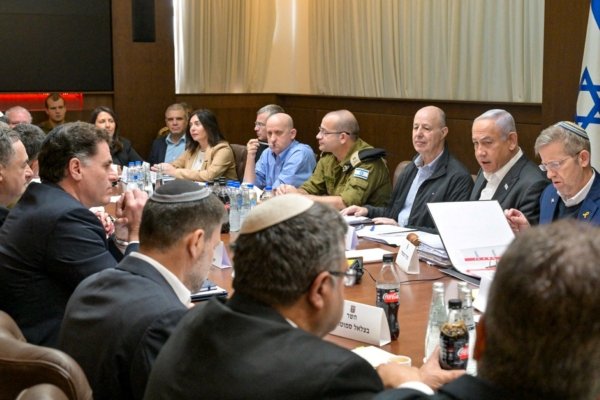An Israeli-Hamas ceasefire agreement is set to come into effect on Sunday morning, local time, suspending the 15-month conflict between Israel and the Palestinian militant group in the Gaza Strip.
This agreement marks a significant breakthrough in the negotiations between the two warring parties. Currently, 90% of the population in Gaza is displaced, with large swathes of land reduced to rubble.
Despite the ceasefire bringing hope to the people of Gaza, the implementation process is expected to be complex and fragile, as the Israeli coalition government faces potential collapse due to opposition from hardline ministers against the ceasefire.
In Israel, many families are eagerly awaiting the return of their loved ones who were taken hostage by Hamas in the October 7, 2023, attack. Israel estimates that 98 hostages are still being held in Gaza, their fates unknown.
According to the agreement, three Israeli women hostages still alive will be released after 4 p.m. local time on Sunday. Shortly after, Israel will release around 95 Palestinian prisoners, the majority being minors or women.
Hamas was supposed to provide Israel with the names of these three hostages on Saturday afternoon, yet as of late Saturday night, Israel had not received the list.
If the ceasefire holds, the next hostage exchange will take place on the seventh day after the ceasefire (January 25). Hamas is expected to release four surviving female hostages, with each Israeli hostage exchanged for 30-50 Palestinian detainees.
In the first stage of the ceasefire agreement, which will last for six weeks, Hamas will release 33 hostages in exchange for Israel releasing nearly 2000 Palestinians.
As the ceasefire progresses, Hamas will release three hostages each week, in exchange for prisoners and detainees. By the end of the sixth week, all 33 hostages on the initial list are expected to be released.
It is currently unclear how many of the first 33 hostages are still alive. The most likely candidates for release are women, children, the elderly, and those with medical conditions.
In exchange, Israel will release Palestinian prisoners and detainees, including over 700 prisoners accused of military activities from the occupied West Bank and Jerusalem, and nearly 1200 Palestinians from Gaza held in Israeli detention facilities.
Under the agreement, Israel will only release the prisoners once the hostages arrive safely in Israel.
By the third week of the ceasefire, negotiations for the “second stage” will commence, aiming to permanently end the war.
However, the post-six-week scenario remains uncertain. To persuade both sides to sign the ceasefire agreement, foreign mediators intentionally kept the content of the second stage vague.
In general, Hamas will release all remaining hostages in Gaza, regardless of their status, in exchange for a complete Israeli withdrawal from the Gaza Strip and the establishment of a “sustainable calm.”
Hamas has stated it will refuse to hand over the final batch of Israeli hostages until Israel ends the war and withdraws all forces from Gaza.
Israel, on the other hand, has indicated it will not agree to a complete withdrawal until Hamas’ military and political capabilities are neutralized, ensuring they cannot continue to rule.
Currently, in southern Israel, schools will delay their opening until after 10 a.m. on Sunday, as Hamas is expected to launch rockets towards Israel before the ceasefire begins.
According to maps released by the Israeli military, Israeli troops in the Gaza Strip remain heavily concentrated in the border areas with Israel and Egypt, maintaining a presence on the roads between northern and southern Gaza.
Under the agreement, on the seventh day of the ceasefire, Israeli ground forces will begin to withdraw from the central road dividing Gaza, allowing Palestinians who previously lived in the northern Gaza to return home.
Safety arrangements, including inspections of Palestinians traveling northwards, are still being finalized, according to an anonymous Israeli military official.
Egyptian officials have stated that the Rafah crossing between Gaza and Egypt is expected to begin operations “soon,” as preparations are made for a large influx of humanitarian aid into Gaza.
Hundreds of trucks carrying much-needed humanitarian supplies are expected to enter Gaza.
Since the Israeli military occupied the region last May, the Rafah crossing, Gaza’s primary gateway to the outside world, has remained closed.
Egyptian Foreign Minister Badr Abdelatty stated on Saturday that Egypt aims to facilitate the entry of over 600 aid trucks into Gaza daily, nearly three times the peak level during the conflict.

